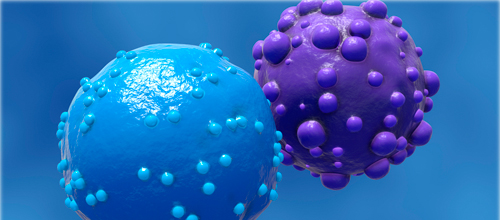July 31, 2017 (Medical News Today)
A lack of understanding of molecular mechanisms which let cancer cells escape detection from the immune system is a reason why existing chemotherapy and stem cell transplants are often ineffective for remissions of Acute Myeloid Leukemia (AML).
A new mechanism, however, has been discovered and has the potential to change current diagnosis and treatment methods for leukemia.
Researchers have found that leukemia cells display a receptor called latrophilin 1 (LPHN1), and when stimulated, a protein called galctin-9 is emitted, which then prevents the immune system from destroying cancerous blood cells.
This discovery allows for the rise of new ‘biomarkers’ when diagnosing AML as well as new possible targets not only for AML, but hopefully for other cancers too.




